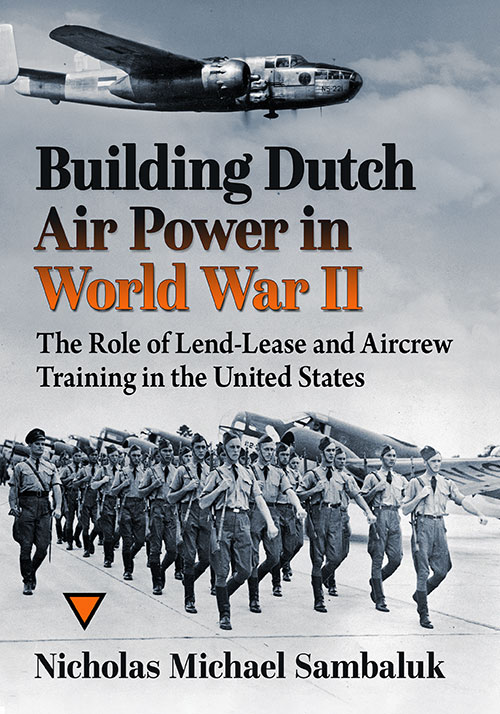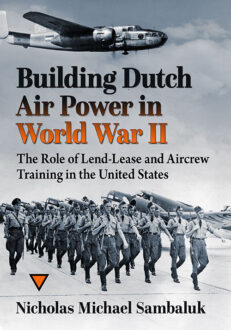Building Dutch Air Power in World War II
The Role of Lend-Lease and Aircrew Training in the United States
$49.95
In stock
About the Book
During World War II, the United States earned the nickname “the arsenal of democracy” due to its sheer productive output, which included over 3,000,000 trucks and jeeps, 86,000 tanks, 6,750 naval platforms, 300,000 aircraft of all types. It was also the arsenal of democracy in a second sense, as a large portion of that hardware was supplied to countries fighting fascism. When Franklin D. Roosevelt introduced the Lend-Lease Act, Allied countries of the antifascist coalition were supplied with aid, hardware, and food. Beyond material aid, the United States also hosted and trained over 20,000 foreign pilots and aircrew between 1941 and 1945.
This book presents the history of one such training program, where 532 Dutch pilots, crew and other personnel were trained on United States soil over 21 months. With the Japanese army intent on invading the Netherlands East Indies, it was critical that the Dutch army strengthen their air power. When resistance fell on the NEI island of Java and Australia became the new front line, Dutch authorities were forced to relocate their training program to Jackson, Mississippi, where they christened the Royal Netherlands Military Flying School. From there, they trained on bases in over a dozen states, representing a high point for the Dutch air force during a grueling time. After their training, the RNMFS participated in the liberation of NEI from Japanese occupation. This history presents, in full context, the training of Dutch air personnel on U.S. soil under the Lend-Lease Act, their easy rapport with their American hosts, and their efforts to establish the Netherlands as an integral part of the Allied cause.
About the Author(s)
Bibliographic Details
Nicholas Michael Sambaluk
Format: softcover (7 x 10)
Pages: 266
Bibliographic Info: 27 photos, notes, bibliography, index
Copyright Date: 2025
pISBN: 978-1-4766-9613-3
eISBN: 978-1-4766-5376-1
Imprint: McFarland
Table of Contents
Preface 1
Introduction 3
1. A Small Neutral but a Global Empire 13
2. A Continental Neutral 36
3. Belated Quest for Security 55
4. The Hammer Falls in the Indo-Pacific 73
5. Arrival 95
6. Preparing to Rejoin the Battle 115
7. International Relations 137
8. Sharpening an Operational Capability 154
9. Global Battle and the Dutch Cleanser 172
10. Empire in Tatters 194
Conclusion: The Fruits of War 213
Timeline 223
Chapter Notes 229
Bibliography 251
Index 257






